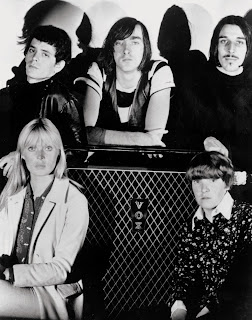Some of us went to college to do this job, and others served apprenticeships.
We have much in common with each other, whether we are fishermen, deep sea folks, towboaters, tugboat drivers, or we work in the oilfield; navigation, basic seamanship, boat handling, vessel maintenance, endless paperwork -- we all perform some of the same tasks sailors have performed for hundreds, even thousands of years.
Outside of work, our interests and hobbies are surprisingly diverse.
 I've met motorcycle enthusiasts, carpenters and woodworkers, gamers, golfers, ceramic artists, model ship builders, writers and photographers, lots of fishermen and a whole bunch of guys who live in anticipation of various hunting seasons.
I've met motorcycle enthusiasts, carpenters and woodworkers, gamers, golfers, ceramic artists, model ship builders, writers and photographers, lots of fishermen and a whole bunch of guys who live in anticipation of various hunting seasons.
We have, among us, some pretty damned fine musicians. A few bring their guitars or mandolins or ukes to work.
I've recently started tying flies, both at home and in quiet off-watch hours on the boat. It's demanding, creative, meditative work that maybe isn't a whole lot different than painting, sculpting, or, say, hand-loading rifle rounds.
Our schedules on tugs -- compressing 54 standard, full-time work weeks into just 183 days each year -- allow time for cottage industries, part-time jobs and a fair amount of entrepreneurship when we are home.
I work with men and women who were, in earlier careers, soldiers, teachers, truckers, marine biologists and factory workers.
But so far as I know, there was only one tugboater who was a bona fide rock star. And only one who held a Ph.D. in medieval literature.
And it was the same guy.
Tugboating Playlist
One of the things my watchstanding partner and I do to entertain ourselves on transits to and from jobs is attempt to find an appropriate song for the vessel we are sailing or docking. It amuses us, and sometimes when we play our selection over the PA, it amuses the guys on the ship.
The Buster Bouchard ATB might get this bluesy number. Or this silly ditty.
The bulker Daydream Believer is pretty easy, and a ship with a Panamanian crew (rather than just the flag) might be treated to some Rubén Blades.
We have a wide-ranging selection of sea shanties, folk, rock and reggae in the playlist. Even some tugboat songs. From Theodore's theme song, to this funky Chucklehead bit, to this one -- which I also used as a soundtrack for a slide show I shared with the family.
One of our mates in Houston saw the slideshow, and commented how much he liked the song, and oh, by the way, did I know it was a tribute to one of the founding members of the Velvet Underground?
A guy who worked for my company in the 1970s and 1980s?
I figured he was pulling my leg, but just in case and because my mind is restless, I did a little internet sleuthing.
A book-toting, tugboating guitar hero
Sterling Morrison, co-founder (along with Lou Reed and John Cale) of the Velvet Underground, left the band in the early 1970s in Austin, where he had been accepted into a graduate program at the University of Texas.
His friend and patron Andy Warhol (yes, that Andy Warhol) told him to go for it -- it would be good for him.
At UT he secured a teaching assistantship to make ends meet, drank a lot of Shiner beer and gigged with some local bands, including The Bizaros. Summers he deckhanded on harbor tugs in Houston.
By 1986, Morrison had his doctorate, and his master's license, and was a full-time tugboat captain.
"We didn't know he was in that band for the longest time," one current employee who worked with him told me. "He didn't really like to talk about it. But I'll tell you this, he was the smartest guy I ever met out here."
One story I've heard, perhaps apocryphal, is that during a round of tough contract negotiations when the company claimed it did not have money for raises, Morrison went dumpster diving at the office and found balance sheets that showed otherwise.
"He enjoyed it," his wife Martha told one interviewer. "I know he liked the friendship, the guys, fishing off the fantail. They worked awfully hard."
 Morrison would return to music, and his Velvet Underground bandmates, sitting-in with Lou Reed and touring with drummer Maureen Tucker's band. In 1993, the VU reunited for a triumphal European tour with U2.
Morrison would return to music, and his Velvet Underground bandmates, sitting-in with Lou Reed and touring with drummer Maureen Tucker's band. In 1993, the VU reunited for a triumphal European tour with U2.
Shortly after their return, Morrison was diagnosed with non-Hodgkins lymphoma. He died at home in New York on August 30, 1995.
Velvet Underground co-founder Lou Reed, writing in the New York Times, had this to say about his friend and former bandmate:
“In these moments that only an artist can capture, I saw my friend Sterling: Sterl, the great guitar-playing, tug-boat-captaining, Ph.D.-ing professor, raconteur supreme, argumentative, funny, brilliant; Sterl as the architect of this monumental effort, possessor of astonishing bravery and dignity. The warrior heart of the Velvet Underground.”
I work with some really interesting people and learn something new from them nearly every week I'm on the boat, but so far as I know I haven't encountered anyone quite like Sterling Morrison
Yet.
 I've met motorcycle enthusiasts, carpenters and woodworkers, gamers, golfers, ceramic artists, model ship builders, writers and photographers, lots of fishermen and a whole bunch of guys who live in anticipation of various hunting seasons.
I've met motorcycle enthusiasts, carpenters and woodworkers, gamers, golfers, ceramic artists, model ship builders, writers and photographers, lots of fishermen and a whole bunch of guys who live in anticipation of various hunting seasons.We have, among us, some pretty damned fine musicians. A few bring their guitars or mandolins or ukes to work.
I've recently started tying flies, both at home and in quiet off-watch hours on the boat. It's demanding, creative, meditative work that maybe isn't a whole lot different than painting, sculpting, or, say, hand-loading rifle rounds.
Our schedules on tugs -- compressing 54 standard, full-time work weeks into just 183 days each year -- allow time for cottage industries, part-time jobs and a fair amount of entrepreneurship when we are home.
I work with men and women who were, in earlier careers, soldiers, teachers, truckers, marine biologists and factory workers.
But so far as I know, there was only one tugboater who was a bona fide rock star. And only one who held a Ph.D. in medieval literature.
And it was the same guy.
Tugboating Playlist
One of the things my watchstanding partner and I do to entertain ourselves on transits to and from jobs is attempt to find an appropriate song for the vessel we are sailing or docking. It amuses us, and sometimes when we play our selection over the PA, it amuses the guys on the ship.
The Buster Bouchard ATB might get this bluesy number. Or this silly ditty.
The bulker Daydream Believer is pretty easy, and a ship with a Panamanian crew (rather than just the flag) might be treated to some Rubén Blades.
We have a wide-ranging selection of sea shanties, folk, rock and reggae in the playlist. Even some tugboat songs. From Theodore's theme song, to this funky Chucklehead bit, to this one -- which I also used as a soundtrack for a slide show I shared with the family.
One of our mates in Houston saw the slideshow, and commented how much he liked the song, and oh, by the way, did I know it was a tribute to one of the founding members of the Velvet Underground?
A guy who worked for my company in the 1970s and 1980s?
I figured he was pulling my leg, but just in case and because my mind is restless, I did a little internet sleuthing.
A book-toting, tugboating guitar hero
Sterling Morrison, co-founder (along with Lou Reed and John Cale) of the Velvet Underground, left the band in the early 1970s in Austin, where he had been accepted into a graduate program at the University of Texas.
His friend and patron Andy Warhol (yes, that Andy Warhol) told him to go for it -- it would be good for him.
At UT he secured a teaching assistantship to make ends meet, drank a lot of Shiner beer and gigged with some local bands, including The Bizaros. Summers he deckhanded on harbor tugs in Houston.
By 1986, Morrison had his doctorate, and his master's license, and was a full-time tugboat captain.
"We didn't know he was in that band for the longest time," one current employee who worked with him told me. "He didn't really like to talk about it. But I'll tell you this, he was the smartest guy I ever met out here."
One story I've heard, perhaps apocryphal, is that during a round of tough contract negotiations when the company claimed it did not have money for raises, Morrison went dumpster diving at the office and found balance sheets that showed otherwise.
"He enjoyed it," his wife Martha told one interviewer. "I know he liked the friendship, the guys, fishing off the fantail. They worked awfully hard."
 Morrison would return to music, and his Velvet Underground bandmates, sitting-in with Lou Reed and touring with drummer Maureen Tucker's band. In 1993, the VU reunited for a triumphal European tour with U2.
Morrison would return to music, and his Velvet Underground bandmates, sitting-in with Lou Reed and touring with drummer Maureen Tucker's band. In 1993, the VU reunited for a triumphal European tour with U2.Shortly after their return, Morrison was diagnosed with non-Hodgkins lymphoma. He died at home in New York on August 30, 1995.
Velvet Underground co-founder Lou Reed, writing in the New York Times, had this to say about his friend and former bandmate:
“In these moments that only an artist can capture, I saw my friend Sterling: Sterl, the great guitar-playing, tug-boat-captaining, Ph.D.-ing professor, raconteur supreme, argumentative, funny, brilliant; Sterl as the architect of this monumental effort, possessor of astonishing bravery and dignity. The warrior heart of the Velvet Underground.”
I work with some really interesting people and learn something new from them nearly every week I'm on the boat, but so far as I know I haven't encountered anyone quite like Sterling Morrison
Yet.


























